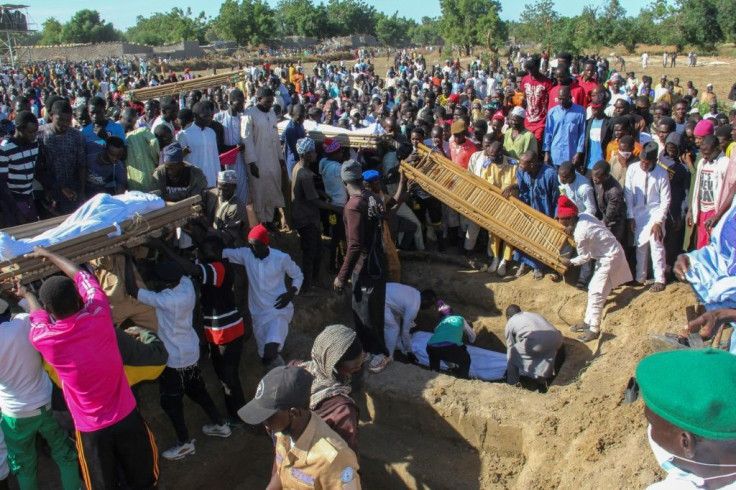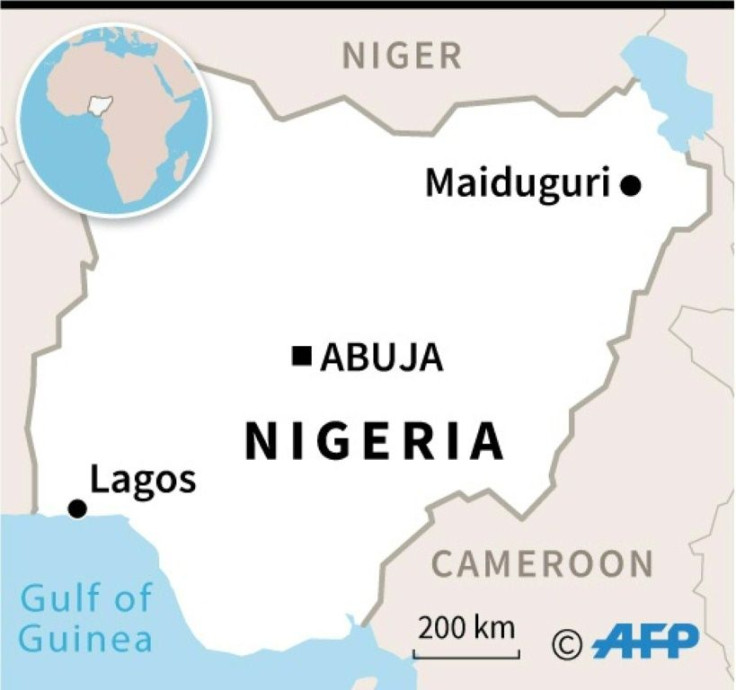Boko Haram Claims Nigeria Farm Massacre As Toll Rises To 76
The Boko Haram jihadist group on Tuesday claimed responsibility for a brutal massacre of farm workers in northeast Nigeria over the weekend as the death toll rose to 76.
The grim search for bodies continues after gunmen on motorbikes attacked the area outside Borno state's capital Maiduguri on Saturday, slaughtering dozens of labourers in rice fields near the village of Zabarmari.
It was initially unclear which Boko Haram faction was behind the assault, but the main group loyal to shadowy leader Abubakar Shekau said in a video Tuesday it was "responsible for what happened around Maiduguri in recent days... especially in Zabarmari."
Borno state information commissioner Babakura Abba Jatau meanwhile said the death toll had risen from 70 to 76.

"Forty-three bodies were buried on Sunday and another 33 were buried on Monday," he told AFP, adding that the death toll could rise further.
"Residents of Zabarmari village where the victims were buried said many more bodies could be scattered in the marshy rice fields."
The United Nations on Sunday said that 110 civilians were killed, but later scaled that back to "tens" of victims, admitting its initial toll was "unconfirmed".
The bloodletting centred on the village of Koshobe, where Boko Haram fighters tied up farm workers and slit their throats.

The Boko Haram video appeared to confirm reports that the attack was waged to seek revenge on villagers for seizing the group's fighters and handing them over to the authorities.
"You thought you would apprehend our brethren and hand him over to the military and live in peace?" a Boko Haram jihadist said in the video.
On Tuesday local teams continued the search for bodies, ploughing through the expansive marshland on foot, trudging behind tractors.
"It is a tiring job because regular vehicles can't move in the difficult terrain because they will definitely get stuck," said Abdullahi Umar, a member of the search team.
He described the search as "dangerous" because Boko Haram insurgents operate in the area, which has footpaths that link up to the group's Sambisa forest enclave.
At least 36,000 people have been killed and two million displaced since Boko Haram launched its jihadist insurgency in northeast Nigeria in 2009.
In 2016, the group split into two groups -- the main faction led by Abubakar Shekau and the IS-affiliated Islamic State West Africa Province (ISWAP).
Both groups have been blamed for increasing attacks on civilians they accuse of spying for the army and pro-government militia.
The jihadist violence has also spread into neighbouring Niger, Chad and Cameroon, prompting a regional military coalition to fight the insurgents.
© Copyright AFP {{Year}}. All rights reserved.





















